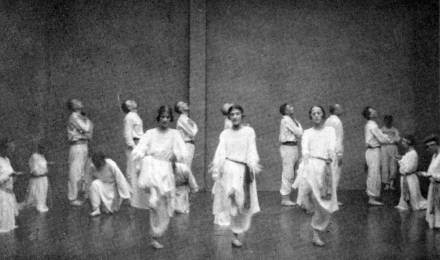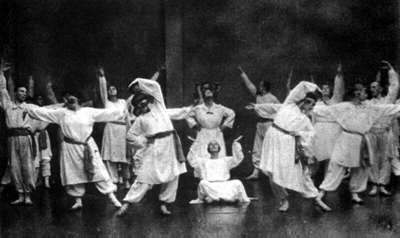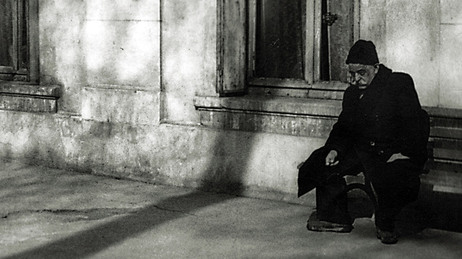“From my point of view, he can be called a remarkable man who stands out from those around him by the resourcefulness of his mind, and who knows how to be restrained in the manifestations which proceed from his nature, at the same time conducting himself justly and tolerantly towards the weaknesses of others.”
-G.I. Gurdjieff, Meetings with Remarkable Men
Georges Ivanovitch Gurdjieff was a spiritual teacher, author, and composer. He was from Russian Alexandropol, now part of Armenia, and brought esoteric Eastern teachings of psychological development to the modern Western world. He wrote many books, travelled widely, and established the Institute for the Harmonious Development of Man in France.
Gurdjieff was able to transmit obscure Eastern spiritual teachings through the system of the Fourth Way, where the dedicated spiritual efforts occurs within modern Western life.
He taught in a unique way with his students through practical work groups, dance-like movements, performances of plays, musical composition, and seemingly mundane skill sets such as repairing carpets.
The gift of Gurdjieff’s teachings exist in both their practicality and synthesis. Theoretical frameworks such as the Ray of Creation were taught schematically, even though clearly are rooted in Kabbalah and other esoteric religious teachings.

 His emphasis was always on direct experience through practical work and not on doctrines or dogmas. The practical aspects included having his students live and work together at the Institutes he founded thereby making an ideal environment for learning about oneself through interaction with others.
His emphasis was always on direct experience through practical work and not on doctrines or dogmas. The practical aspects included having his students live and work together at the Institutes he founded thereby making an ideal environment for learning about oneself through interaction with others.
Students also learned complex movements that involved the mind, emotions and body, challenging them to pay attention in a new way, and to learn the very hard truth of our innate psychological sleep.
Gurdjieff created a bridge between the esoteric teachings of Sufis, Christian Gnostics, Tibetan Buddhists, and modern Western culture, and helped pave the way for the schools of practical Gnosticism.
Musical piece: Atarnakh/Kurd Song composed by G.I. Gurdjieff, arranged by Levon Eskonian and performed by the Gurdjieff Folk Instrument Ensemble.

